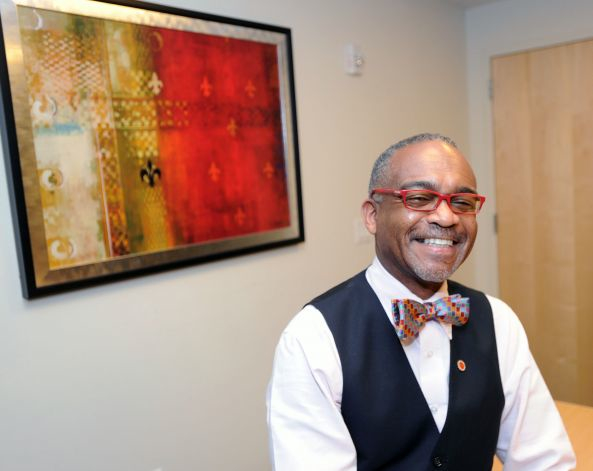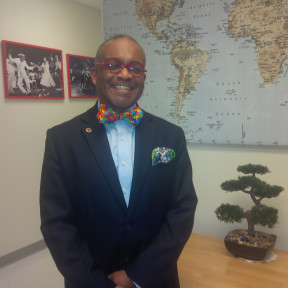
March 3, 2016 7:30 am Why Diversity is Important in Education and Beyond

By Dr. Paul Lowe Admissions Expert
Some people view diversity as a nebulous and intangible descriptor, a court-ordered societal mandate or, in some cases, even unconstitutional. In truth, diversity is an invaluable asset and in the financial sense has an unlimited ROI. We live in a competitive and interconnected global society; not in the small, homogenous and insular communities that we may perceive. Diversity has always been America’s greatest asset! Diversity is a necessary precondition to our democracy and has provided the impetus for engagement in the full kaleidoscope of “American culture.”
Diversity in schools (PreK-12th): Learning in a truly culturally, ethnically, racially, socio-economically and visibly diverse school community is a valuable asset in a global society where local as well as international communication is essential. Does diversity really matter? Does it really matter if a child interacts with another student or a faculty member who is socio-economically, ethnically, culturally and racially different? Perhaps it is not important to some. However, studies show that interacting with others who are different can bring new ideas. Diversity improves the way children think. It inspires independent thinking and intellectual risk-taking. By disrupting conformity and insularity, racial and ethnic diversity prompts and enhances students’ analytical and creative thinking, problem-solving, cultural and communicative intelligences and cognitive development and performance. A diverse school environment, not one of homogeneity and sameness, has been proven by studies to improve the learning environment for children. Diversity contributes ingenuity, creativity, cognitive friction and intellectual vibrancy to a school community. Schools are entrusted with the responsibility of preparing students for tomorrow’s world. Exposure to different cultures, ethnicities and races and learning to respect them is a formative experience for children in a world where cultures are more than ever interdependent and interconnected.
Diversity in college admissions: Colleges are looking for cultural, intellectual and meta-cognitive diversity in their classes as well as students who can relate to diverse populations. Colleges accept classes not just great students. They are seeking students who understand and appreciate other races cultures and ethnicities. With regard to diversity, admissions committees ask the following questions: Can the applicant co-exist in our diverse community of different students who are global thinkers? Does the applicant profile demonstrate a lack of a diversity experience? Has the applicant meaningfully interacted with people outside of his socio-economic, cultural and ethnic norms? It has been my observation that college admissions officers and deans of admissions behave like forensic investigators; they analyze and assess how, why and when dots are connected. They want talented, intellectually engaged students who will be meaningful contributing members of a diverse incoming class and future alumni who will be their global ambassadors. They do not seek students who are “unique just like everyone else” in their respective communities. In my experience, applicants who are accepted are those who can stand out and lucidly articulate their achievements, goals and personalities, and project themselves in a positive light to a committee of six to ten diverse people! In my firm, which consists of a culturally, ethnically and racially diverse team, we truly appreciate and understand this emphasis, and we innately embrace the meaning and value of standing out and apply it to the competitive admissions process. Our “Diversity Competitive Advantage” translates to successful admissions results for our clients!
Diversity in business and commerce: In today’s globalizing, fast-changing, networked world, the capacity to turn diversity to one’s advantage is critical. It is not just a nice thing to do; it is a must. As the world evolves dramatically, cultural, ethnic and racial immersion has become a widespread organizational imperative – from Google to IBM. Research shows that diversity usually trumps familiarity, insularity and ability. Diverse teams are much better at problem-solving. They bring different cognitive toolkits and ways of approaching a problem to the table. Diverse teams see customers, products, and market opportunities in creative, new ways.
A recent report entitled, “Innovation, Diversity, and Market Growth” found that when teams have one or more members who represent the gender, ethnicity, culture, generation, or sexual orientation of the team’s target end user, the team is as much as 158 percent more likely to clearly understand that target subject. This difference significantly increases the team’s likelihood of creating successful programs or products for their target subject. Researchers report and the American Sociological Association has demonstrated that in organizations with diverse teams there is a 9% rise in sales revenue and significant increase in business performance. In contrast, monolithic and homogeneous thought within a group makes a cohesive team, but one that will happily and repeatedly agree on the same mistake as the rest of world evolves.
Diversity in international relations: We live in a world that is diplomatically, financially and geopolitically multipolar; where cultural, ethnic and racial intelligences are keys to successful diplomatic and international relationships. Unipolarity and, in some cases, bipolarity is no longer the norm in a competitive global environment. The dynamically shifting multipolarity system is interrelated, interconnected and interdependent. Brazil, Russia, India China, (BRIC) and Africa (and now the Middle East) are having a growing and significant influence on global, U.S. as well as local economies. Several studies, and one comes to mind, a working paper at National Bureau of Economic Research: “Cultural Diversity, Geographical Isolation, and the Origin of the Wealth of Nations” state that diversity has a positive impact on a nation’s economic growth and is a key driver to economic progress and prosperity. Another study suggested that diversity provides the motive force of intellectual, technological, and artistic evolution.
So the next time you hear or see the word DIVERSITY think of it as a tangible COMPETITIVE ADVANTAGE!
Dr. Paul Reginald Lowe is the managing director and lead admissions expert at Greenwich Admissions Advisors.
Tel. (203) 542-7288, and founder of Ivy League Admissions Advisors.
Dr. Lowe specializes in providing exclusive admissions advisory services for families and students who are interested in applying to and experiencing the unique educational environment and communities of Ivy League and highly selective colleges and elite private day and boarding schools.
Dr. Lowe is an active member of several professional organizations including: the Higher Education Consultants Association (HECA), the National Association for College Admissions Counseling (NACAC), the New York Association for College Admission Counseling (NYACAC), the New Jersey Association for College Admission Counseling (NJACAC), the International Association for College Admission Counseling (IACAC), and NAFSA: Association of International Educators, American Foreign Service Association (AFSA), and the Admissions Leadership Consortium (ALC).


